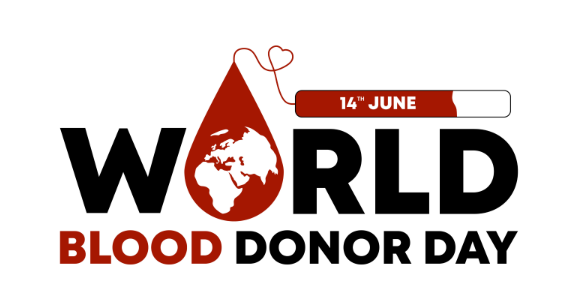
 By Swetha Babu and Elizabeth Iwuamadi
By Swetha Babu and Elizabeth Iwuamadi
 Every year, the 14th of June is celebrated as World Blood Donor Day. This day was chosen in order to celebrate the birthday of the man who discovered ABO blood types and was awarded the Nobel prize forthat discovery, Karl Landsteiner. 2024 marks the 20th anniversary of this day being celebrated, and the theme is “20 years of celebrating giving: thank you blood donors!”.
Every year, the 14th of June is celebrated as World Blood Donor Day. This day was chosen in order to celebrate the birthday of the man who discovered ABO blood types and was awarded the Nobel prize forthat discovery, Karl Landsteiner. 2024 marks the 20th anniversary of this day being celebrated, and the theme is “20 years of celebrating giving: thank you blood donors!”.
As an organisation with experience in haematology (including providing scientific and medical services to haematology clinical trials, and training), Pharmora is glad to join in the celebration of the 20th anniversary of this significant event.
While the need for blood is universal, access to blood is not. Blood shortages are acute in low- and middle-income countries. Ensuring the safety and well-being of blood and plasma donors is critical; which helps to build commitment to regular blood donations.
In the past, unfortunate events involving infected blood in the UK have been widely reported on and you may have seen it in the news. More than 30,000 people in the UK were infected with HIV and Hepatitis C after being given contaminated blood products from 1970 to 1991. Sadly, over 3,000 people have since died. This is one of the key reasons why awareness is raised for World Blood Donor Day; to ensure that blood, blood products, and blood donations are safe.
A recent breakthrough in the blood donation field brings hope for solving blood shortages! A group of researchers from Technical University of Denmark (Danmarks Tekniske Universitet) and Lund University has discovered an enzyme for producing universal donor blood. Human red blood cells have a specific antigen that determines the blood group, namely A, B, AB, and O. Currently, blood type O is the only universal donor blood as it carries none of the blood type antigen, and thus would not cause compatibility issue.
The research group discovered a specific enzyme from human gut bacteria, which can break down the blood group antigen complex and convert group A and B red blood cells. Study lead, Professor Martin L. Olsson, states that “Universal blood will create a more efficient utilization of donor blood, and also avoid giving AB0-mismatched transfusions by mistake, which can otherwise lead to potentially fatal consequences in the recipient.”
We hope to encourage more people to give blood, and to make a start we have decided as an organisation to support this with our own donations!
Click HERE link to find your nearest blood donation centre.